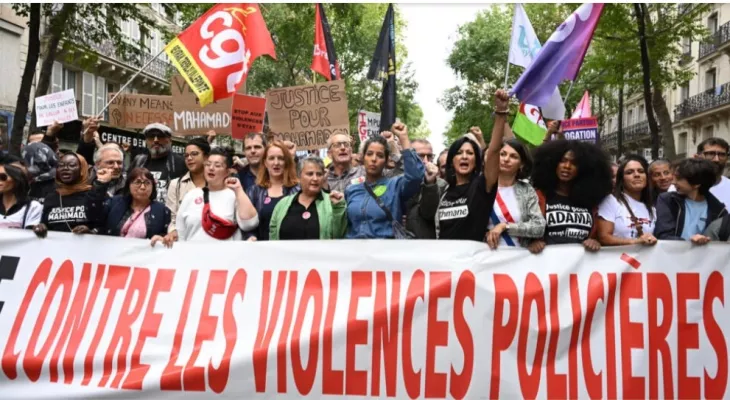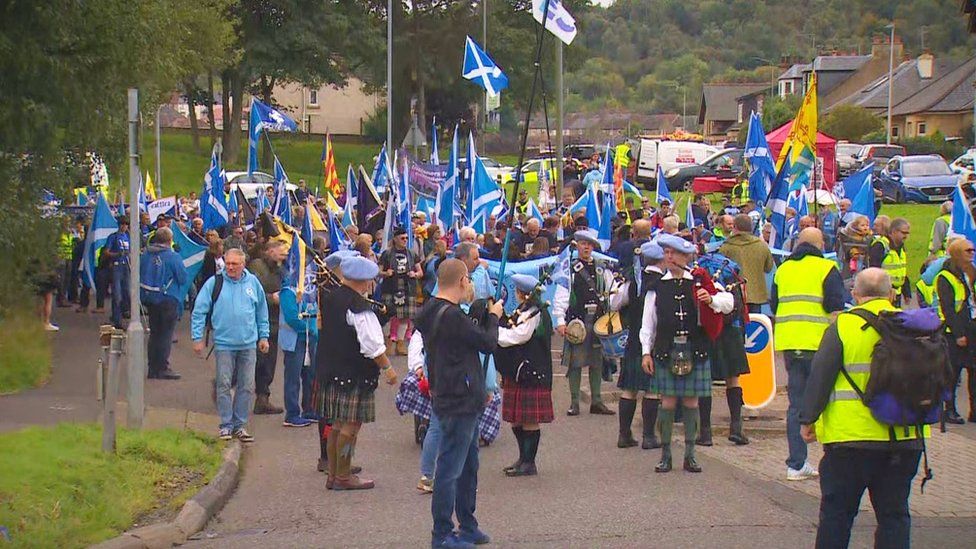Tens of thousands of people marched in France Saturday to protest police violence in demonstrations organised by the left, with clashes breaking out on the margins of the Paris rally.
The nationwide protest came just under three months after the point-blank-range killing by a policeman of a youth at a traffic check sparked more than a week of rioting in Paris and elsewhere.
In the capital, demonstrators of all ages held placards proclaiming “Stop state violence”, “Don’t forgive or forget” or “The law kills”.
Demonstrators took particular aim at article 435-1 of the internal security code, introduced in 2017, which extends authorities’ leeway to shoot in the event of a suspect’s refusal to comply.
They were responding to a call by the radical left including the hard-left France Unbowed (LFI).
Unions said some 80,000 people joined the protests across France, including 15,000 in Paris, but the interior ministry put the number at 31,300 nationwide, with 9,000 in Paris.
– ‘Unacceptable violence’ –
The government denounced “unacceptable violence” on the margins of the march in Paris, after officers were trapped in their police vehicle when it was attacked, an AFP correspondent said.
Hundreds of hooded people wearing black broke away from the main march of several thousand people in Paris.
They smashed the windows of a bank branch and threw objects at a police car stuck in traffic, an AFP reporter said.
Paris police said the car was attacked with a crowbar and that anti-riot officers were forced to intervene.
Police said three officers were slightly injured.
A video later published by the BFMTV channel and shared on the internet showed a group of masked protesters running after the car, repeatedly kicking it, as one man smashes a window with a crowbar.
An officer gets out and brandishes his service weapon, but does not fire it and gets back in the vehicle.
“We see where anti-police hatred leads,” Interior Minister Gerald Darmanin wrote on X, formerly Twitter, denouncing “unacceptable violence” against the police.
Paris police chief Laurent Nunez said three people had been arrested over the incident.
In total, six people were arrested throughout France, according to a report by the Ministry of the Interior.
– ‘Injustice destroys families’ –
Among those marching in the northern city of Lille was 27-year-old Mohamed Leknoun, whose brother Amine was killed in August 2022 after refusing to obey police orders.
“All this injustice destroys families,” he told AFP.
He deplored the fact that he had not been informed of any progress in the investigation since the police officer who fired the fatal shot was indicted.
The march came days after the IGPN, the inspectorate responsible for investigating police misconduct, released its annual report on the use of force by officers.
It showed that in 2022, 38 people died as a result of police action, including 22 who were shot dead. Thirteen of those deaths involved cases of someone refusing to comply with a police order.
In July, the UN Committee on the Elimination of Racial Discrimination — made up of 18 independent experts — flagged concerns about the “excessive use of force by law enforcement” in France.
It also called for the government to “adopt legislation that defines and prohibits racial profiling”.











